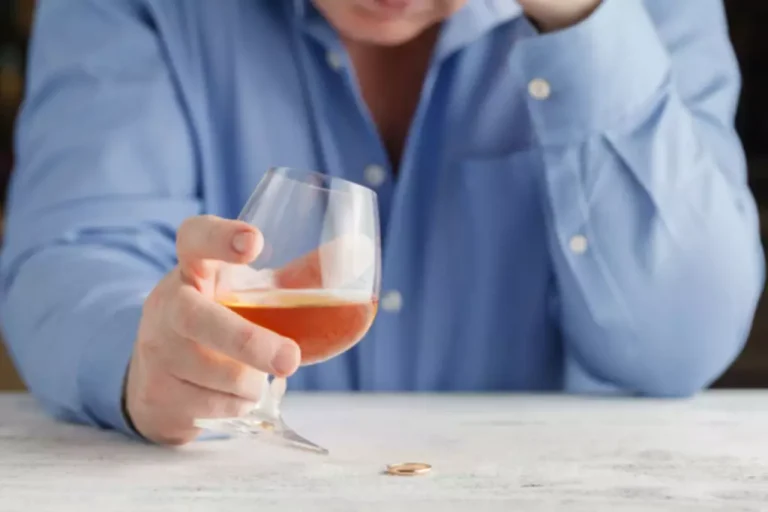
While moderate alcohol use does have a blood-thinning effect, using alcohol specifically to thin your blood or have a healthier heart is not recommended. Blood thinners are medications that slow your body’s ability to coagulate blood, making your blood less likely to form blood clots. These medications are intended to treat blood clots in people who have them or reduce the risk of them forming. Blood thinners do not actually reduce the size of existing clots, but they can enhance the body’s natural process for eliminating unhealthy blood clots. People taking blood thinners with reduced liver function may accumulate more medication in their bloodstream.

Blood thinners and alcohol: can they be used together?
- When you’re on blood thinning medications like Warfarin or newer blood thinners like Xarelto or Eliquis, what you eat and drink can impact how well these medications work.
- This increased risk persists for years after the initial injury, with some studies finding a correlation even five years post-concussion.
- However, people should not consume alcohol instead of taking medications as a healthcare professional has prescribed.
However, these effects are generally temporary and not significant enough to be classified as a blood-thinning mechanism. To fully understand the relationship between alcohol and blood thinners, it is important to first gain an understanding of what blood thinners are and how they work. Additionally, it is necessary to debunk the common myth surrounding alcohol as a blood thinner.
Eliquis and Alcohol
The antiplatelet effect is related to inhibition of release of serotonin (5-hydroxytryptamine, 5-HT) and ADP from platelets by ferulic acid 49–52. However, patients who take the herb, particularly in large doses and/or in combination with blood-thinning medications, are advised to be more cautious. Cranberry (Vaccinium macrocarpon) is claimed to be used for prevention and treatment of urinary tract infection, anorexia, diabetes, stomach ailments, and blood disorders, among several other effects 26, 27. Cranberry supplements are available as concentrated liquid extracts, tablets, and capsules. The herb is a rich source of certain types of phytochemicals, including flavonoids, glycosides, anthocyanins, and triterpenoids 26, 27.
Alcohol and Blood Thinners: Exploring the Relationship
Blood clotting is essential to prevent blood loss when someone is injured or wounded. For example, if a blood clot forms and limits the flow of blood in the arteries, doctors call this thrombosis. If you consume large amounts of alcohol at one time or drink alcohol on a daily basis, be sure to discuss this with your doctor. Heavy alcohol use may increase the risk of a stomach ulcer or bleeding, and this can be worsened by an anticoagulant. Patients with a history of atrial fibrillation (AFib), peripheral artery disease (PAD), heart attack, or knee or hip surgeries who are at risk for a blood clot (a venous thromboembolism) might be prescribed an anticoagulant. Ultimately, anyone who is taking any kind of blood-thinning medication should speak with their doctor before mixing it with alcohol.

Why is it a risk?
- Fenugreek (Trigonella foenum-graecum) is often used for diabetes mellitus, gout, inflammation, gastrointestinal problems, and muscle pain 20, 26, 27.
- The researchers discovered that 2.9% of TBI patients experienced a stroke within five years of their injury, compared to only 0.3% of the healthy patients.
- One study, published in the journal Stroke, examined the records of over 23,000 TBI patients and compared them to those of almost 70,000 people without brain injuries.
- Caffeine and various types of polyphenols are considered to be the major bioactive substances contributing to the claimed beneficial effects of green tea.
- They are a group of drugs that stop certain blood cells (called platelets) from clumping together and forming a blood clot to help stop bleeding.
By understanding the potential risks and interactions between alcohol and blood thinners, individuals can make informed decisions about their health and well-being. Prioritizing responsible drinking and following precautions can help ensure optimal medication effectiveness and minimize the risk of adverse events. Alcohol can impair the liver’s function, which is responsible for producing many of the blood clotting factors.
This supplement is widely claimed to be used for multiple illnesses like respiratory and gastrointestinal disorders, infections (microbial and parasitic), allergy, various types Twelve-step program of cancer, and arthritis 26, 27. As an herbal supplement, oregano is formulated as capsules and liquid preparation (oregano oil). Certain compounds identified in oregano have been proposed to be responsible for alleviating at least for some of the conditions described. These compounds include flavonoids (primarily naringin), and the essential oils, monoterpenoids, and monoterpenes (primarily carvacrol and thymol) 26.

What Happens When You Drink Alcohol and Blood Thinners?
You should not be started on these medicines if you have any active bleeding such as a peptic ulcer or bleeding in the brain. Reported protective alcohol effects may vary depending on the type of beverage, their alcoholic content or non-alcoholic components, and the quantity consumed.
Blood Thinners for Atrial Fibrillation

We strive to create content that is clear, concise, and easy to understand. Any educational information on this page does not replace an in-person consultation with your local cardiologist or electrophysiologist. This information is to be used at your own risk based on your own judgment. Binge drinking, or having more than five drinks in a row, also makes getting AFib more likely. Green tea also contains some vitamin K, so it’s best to choose another option, like black tea, which doesn’t interact with a blood thinner.
- Antiplatelets, for example, prevent platelets from sticking together to form clots.
- Dong quai (Angelica sinensis) is originally a Chinese traditional medicine promoted in the USA as a dietary supplement for treating mainly gynecological complaints and migraine headache.
- The guidelines generally advise limiting alcohol consumption to no more than 1 drink per day for women and no more than 2 drinks at a time for men when taking Eliquis.
- Coumadin is one of the most commonly used blood thinners in the U.S., but it carries a 3% to 6% risk of major bleeding.
- This heightened risk of bleeding can be quite dangerous, potentially escalating minor injuries into severe bleeding events.
What foods to avoid while on Eliquis
Over time, the persistent irritation from alcohol can weaken the stomach lining, increasing the susceptibility to ulcers. This heightened risk of bleeding can be quite dangerous, potentially escalating minor injuries into severe bleeding events. Heavy drinking, or more than three drinks a day, bumps up your beer and blood thinners risk even more. Studies suggest that for every extra daily drink, your risk goes up by 8%.